
AMH Gold Plus Test
About Anti-Müllerian hormone (AMH) test?
AMH test is used to measure the amount of anti-mullerian hormone (AMH) in the blood. Both men and women produce AMH. Doctor’s commonly use this test in women to evaluate their reproductive health.
Anti-Müllerian hormone (AMH) is a hormone that is produced by the testicles in males and the ovaries in females. The role of AMH and the amount present in the body differs depending upon sex and age.
Functions of AMH
· AMH levels are higher in male babies preventing them from developing female reproductive organs.
· Female babies require a small amount of AMH for their development.
· AMH regulates follicle-stimulating hormone (FSH) and luteinizing hormone (LH) during the process of egg maturation and release (ovulation) in women.
An AMH test is done to evaluate a woman’s current fertility status and may predict the onset of menopause. Getting an AMH test is usually recommended to determine a woman’s ovarian function and her likelihood of conceiving.
When is AMH test ordered?
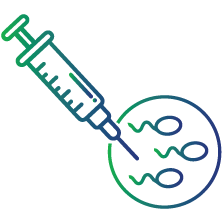
To evaluate ovarian function and fertility issues, especially during in vitro fertilization (IVF)
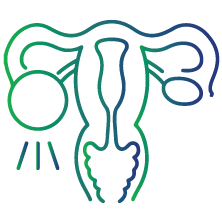
To evaluate polycystic ovary syndrome (PCOS)
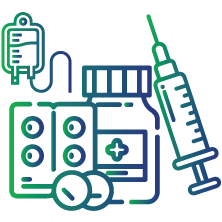
To evaluate the effectiveness of ovarian cancer treatment

To evaluate the presence of external sex organs that clearly are not male or female (ambiguous genitalia) in infants

To evaluate the function of the testicles in a baby boy

To evaluate why a female is beginning to develop male characteristics (virilization).
Symptoms of PCOS
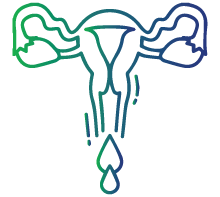
Abnormal uterine bleeding

Acne

Absence of menstrual cycle (amenorrhea)
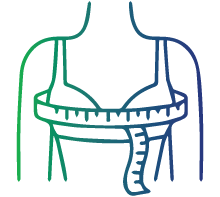
Decreased breast size

Excess face and body hair (hirsutism)

Weight gain

Thinning hair, with male pattern baldness
Preparation for test
No special preparation is required for this test.
What sample is collected?
A blood sample is collected from a vein in the individual’s arm.
How is the AMH test used?
AMH test in women: An AMH test is ordered to estimate the remaining time left to conceive (ovarian reserve) while being evaluated for infertility in women of childbearing age. This test tells the number of remaining eggs women have and whether the ovaries might be aging too quickly. An AMH test is also used to evaluate the response to injectable fertility drugs in preparation for in vitro fertilization (IVF).
AMH test in infants: An AMH test is ordered to help determine the sex of the baby in an infant having external genitals that are not clearly male or female. This test may also be used to help determine whether testicles are functioning normally in baby boys by measuring the AMH level.
Interpretation of Results
|
Parameters |
AMH levels |
|
Negligible |
< 0.2 ng/ml |
|
Reduced |
0.2 - 1.0 ng/ml |
|
Normal |
1.0 - 7.0 ng/ml |
|
High |
> 7 ng/ml |
Normal value ranges may vary slightly among different laboratories and some labs use different measurements.
In women:
· Decreased AMH level may indicate a low number and quality of eggs (low ovarian reserve) with diminishing fertility, resulting in less responsiveness to IVF treatment. It may also indicate that the ovaries are not functioning properly (premature ovarian failure).
· A decreasing level in AMH may signal the onset of menopause. Negative to low levels of AMH are normal during infancy and after menopause in females.
· When AMH is used to monitor ovarian cancer, then a decrease in AMH indicates a response to treatment while an increase may be indicative of cancer recurrence.
· Increased AMH may indicate an increased responsiveness to IVF.
· An increased level of AMH is commonly seen in PCOS.
· Females who develop male characteristics, if the AMH levels are in the male reference range, it is most likely from a tumour or testicular tissue. Whereas if the AMH levels are in the female reference range, it is likely from the adrenal glands.
In Infants:
· In male infants, low levels of AMH may indicate a problem with testicles. Lack of male hormones may result in underdeveloped genitalia and may cause abnormal internal reproductive structures.
FAQs
What are the risks involved in an AMG test?
This test involves negligible risk. There might be slight pain or tenderness around the site where the needle went in. Rarely, the site can become infected
What is the turnaround time (TAT) for the results of an AMG test?
Results of an AMG test is usually available within a day, although it could take longer at times
Is it necessary to schedule an AMH test around my period time?
An AMH test can be scheduled at any point during your menstrual cycle. Unlike other reproductive hormones, AMH does not fluctuate a lot throughout the month
Can AMH test be used to diagnose infertility?
AMH levels can help determine a women’s ovarian reserve or the number of eggs she has at the time of testing. As you age, these levels decline. But AMH levels alone cannot be used to predict infertility
What are good AMH levels according to age?
AMH levels naturally decline with increasing age. The below levels represent the lower limit of serum AMH values by age (estimates).
|
Age |
AMH level |
|
25 years old |
3.0 ng/mL |
|
30 years old |
2.5 ng/mL |
|
35 years old |
1.5 ng/ mL |
|
40 years old |
1 ng/mL |
|
45 years old |
0.5 ng/mL |

